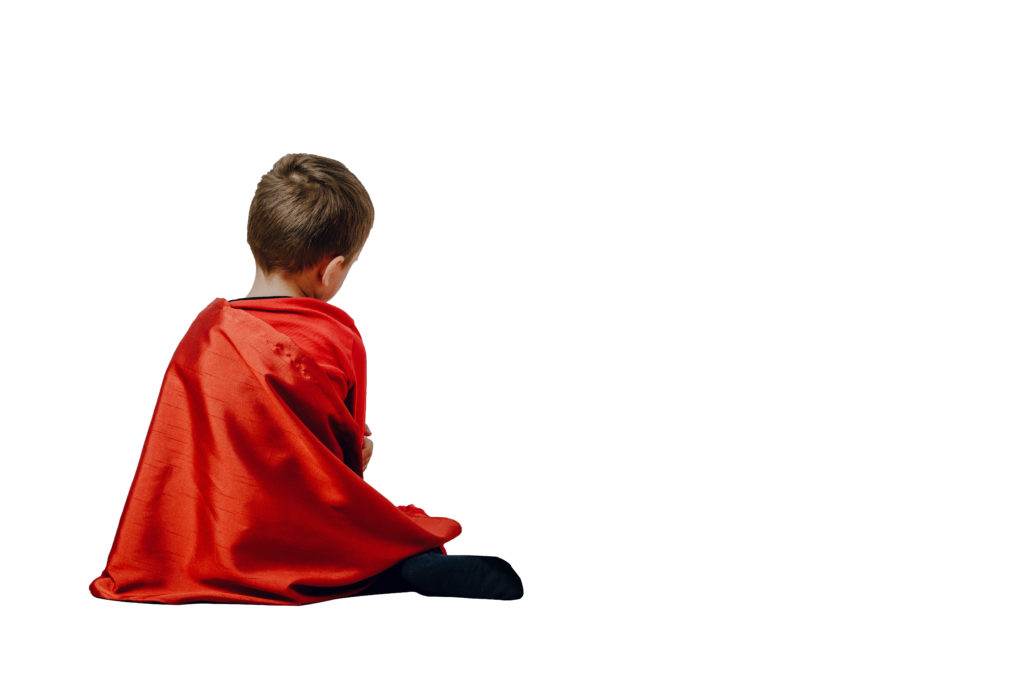Children’s Mental Health Week
4 Feb 2021 | Anne Marie Fogarty
| Share with

Mental health is not just the absence of mental illness; it involves how we feel or behave without a diagnosed mental disorder.
Our children’s mental health affects how they act, how they feel, and how they behave. It is essential to educate them on matters of the mind early on, which we can often achieve through play for younger children.
Their mental health has physical, emotional, and social consequences that can trickle into their little lives in so many areas.
What can we do to help children with mental health issues?
Children’s Mental Health Week 2021 will take place from February 1-7. The concept underpinning the week is to promote healthy children, both inside and outside the body. This year’s theme is Express Yourself. Express your feelings, thoughts and who you are. This often begins with talking. Let’s make mental health a regular part of their lives, a daily conversation, a common topic like the weather, then the onlooking little eyes of children see that mental health is a common issue and it is the norm to talk about it. As parents, adults, and teachers, let’s lead by example and express ourselves as individuals.
Express Yourself theme suggests children can use drama, art, creative writing, dance, or any form of creativity they like to do to express themselves.
What is Children’s Mental Health Week all about?
- Who? – Children’s Mental Health Week was set up by the children’s mental health charity, Place2Be.
- Why? -The week highlights the importance of children and young people’s mental health. A topic that, for too long has been associated with shame, stigma, and embarrassment.
- Theme –This year’s theme is Express Yourself. The idea implies that we all need to express who we are, and our children should be encouraged to express their feelings and thoughts.
What is the impact of mental health issues on Children?
A staggering 1 in 6 children and young people have a diagnosable mental health condition. Mental health problems impact other activities and can manifest itself in physical illness also. For example, many parents can relate to the familiar ‘tummy pain’ that suddenly arrives on a Monday at 9 AM, only to disappear soon after school begins. Teaching our children at an early age how to use coping mechanisms and how to express feelings can support them as a tool well into adulthood.
What can we do to promote positive mental health in children?
Let’s ensure children and young people:
- Enjoy the outdoors – Get plenty of free time for fresh air and leave the tech world indoors for a few hours every day, if possible.
- Diet – Eat a healthy well-balanced diet, including all the food groups, rich in nutrients and vitamins.
- Minding yourself – Promote self-care, from a young age to instil in children the importance of caring for our minds and bodies. Taking time out for children’s yoga or relaxation techniques of their choice is essential in daily life.
- Sleep- Get adequate sleep- Recent research carried out by Place2Be, found that children who got less than the recommended 9 hours of sleep on a school night are more likely to have worries that interfere with their school day.
- Talking to your peers or friends, family or a trusted outsider.
- Lead by example -Perhaps one of the best ways we as adults can empower children is to lead by example. We must be comfortable talking about our mental health, showing them by example, that it is good to talk about these topics.
- Play – Children need the freedom to explore, learn, grow, and play.
- Expression- through a medium that the child enjoys-be that art, writing, singing, whatever means of creativity that they can express themselves through.
- Love – A secure, loving home environment free from frequent or intense arguing, hostility and aggression helps children feel relaxed and safe. They need hugs and closeness from people they love. All children have the right to have a home that’s their soft landing from the outside world. A home that’s safe, warm and a loving place to cuddle up. It’s been shown that bedtime is a time when children start to worry about things. Why not grab a book with a happy ending, snuggle up beside them, and read with them? Stopping to chat if they want to. Showing love for our children by hugs, kisses, and telling them we love them helps them with their mental wellbeing. They are only little for a short time; let’s make it a great time!
- Resilience – children need to build a strong resistance to life’s problems; these are skills to help them cope when issues arise.
At ProMedical, we believe in people first. Our healthcare workers work tirelessly to help children with mental health conditions feel confident in talking about their emotional wellbeing. We encourage you all to Express Yourself, open-up, and start the much-needed conversations around mental health.
Our children are watching, lets bravely lead them by example, into a new generation of empathy and positive mental health where we can always express ourselves
To get involved or to find out more, about Children Mental Health Week 2021, visit https://www.childrensmentalhealthweek.org.uk/ for lots of resources and ideas.
Leave a Comment
You must be logged in to post a comment.

04 Feb 2021 | Leave a comment
Share with socials